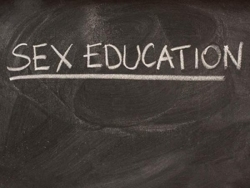
This year was a good year for national sex-ed expansion, shows a comprehensive new report by the Sexuality Information and Education Council of the United States (SIECUS). But advocates warn that the quality and quantity of education kids receive on the topic still differs dramatically from state to state. SIECUS’s 2015 Sex Ed State Legislative Round-Up is the first-ever state-by-state review of sex education policy provisions introduced to state legislatures. Specifically, the report looked at 163 bills related to comprehensive sexuality education (CSE) introduced across 40 states this year.
Sex-ed advocates said CSE goes way beyond teaching kids about abstinence, contraception, and HIV and other sexually transmitted infections. Comprehensive sexuality education also addresses the physical, mental, emotional and social dimensions of human sexuality. In addition, CSE considers the needs of all young people, including those who are sexually active, pregnant, lesbian, gay, bisexual, transgender, queer or questioning, intersex or asexual.

Among the sexuality education bills SIECUS reviewed, the organization found that 74 percent of state laws introduced by legislators in 2015 sought to advance CSE in their states, while 28 percent sought to restrict it. Additionally, of the 13 state bills about school sex-ed that were actually enacted in 2015, 12 expanded CSE, while just one—introduced in Alaska—restricted its state’s sex-ed statutes.
The report showed that the most common legislative topics discussed in the proposed bills included provisions about sexual violence prevention education, various sex-ed instruction requirements, bullying prevention, age-appropriate instruction, homosexual relationships, gender identity discussions, parent notification or authorization requirements, anti-abortion statutes and stressing abstinence-only or abstinence-until-marriage viewpoints.










